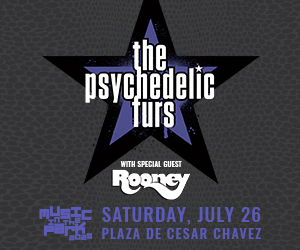 Ginsberg ushers in cultural revolution in uneven ‘Howl’
Ginsberg ushers in cultural revolution in uneven ‘Howl’
In a San Francisco coffeehouse in 1955, a “29-year-old unpublished poet” and former advertising copywriter stood up and read a poem that ushered in the beat era and revolutionized the culture. His name was Allen Ginsberg, the poem was “Howl,” and that historic reading—combined with the obscenity trial that followed, and the complex emotional journey Ginsberg took to write it—are all celebrated in the ambitious, but wildly uneven Howl.
Co-written and directed by Rob Epstein and Jeffrey Friedman (the documentary filmmakers who made The Celluloid Closet and The Times of Harvey Milk), the film is blessed with a fascinating performance by James Franco as the young Ginsberg. Franco has done his homework, especially in capturing the familiar, somewhat nasally and flat, yet exultant voice in which the poet reads his poem; the film’s best moments come from the pleasure of watching Franco’s Ginsberg in the ecstatic grip of his muse.
The film begins in black-and-white on that fateful evening, with Ginsberg nervously pushing up his glasses and launching into “Howl.” The body of the poem is delivered in segments throughout the film, interspersed with snippets from the 1957 trial in which Lawrence Ferlinghetti is charged with obscenity for publishing the poem in book form. The prosecutor (David Strathairn) tries to quantify the ratio of “prurience” to literary merit, while the defense attorney (John Hamm) argues that free speech is essential to a free society.
Meanwhile, also in 1957, a slightly older Ginsberg sits down with an unseen interviewer to tell the story of his early life into a reel-to-reel tape recorder—his institutionalized mother, his own brief stint in a New York City mental hospital, his emerging homosexuality and vain attempts to be “normal.” When he flees to California, we glimpse his friendship with (and unrequited passion for) both Jack Kerouac (for whom he says he wrote “Howl”) and Neal Cassady.
As an historical artifact of an era in transition, and in charting the sheer audacity of the young Ginsberg in challenging the status quo with his profane, incendiary poem, the movie is a great success. But in sticking strictly to court transcripts and Ginsberg’s interviews for its material, the narrative often feels boxed-in and airless. Between the reading of “Howl” and the poet’s recollections, the movie is mostly a Ginsberg monologue; his story plays out in the past tense, a series of vignettes that never amounts to dramatic action with an evolving story arc. Far more trepidatious than Ginsberg ever was, the doc-trained filmmakers dare not imagine one single dramatic moment that isn’t already a matter of historical record.
When they do take artistic license, however, it’s a near-fatal decision from which the film almost does not recover. As “Howl” is read aloud, we’re shown lengthy animated sequences attempting to illustrate the words with trippy visuals—as if the filmmakers didn’t trust Ginsberg’s carefully crafted language to transport our imaginations on its own terms. This is an affront to both the poem and the audience. Imagine a film of Hamlet in which, when Hamlet begins the “To be or not to be” speech, the camera cuts away to a cartoon of literal slings and arrows vaulting across the sky, or a figure raising a weapon against a symbolic tidal wave of troubles. It’s like watching the Classic Comics Illustrated Howl.
If somebody wanted to interpret “Howl” in animated form, great; submit it to Spike & Mike. But in a live-action film—especially one so concerned with the power of provocative language—it’s just an annoyance. The beats in the onscreen coffeehouse groove to Ginsberg’s poetry in a way we’re not allowed to; they hear the music in their heads, inciting their own private visions. Viewers of the film realize how badly we’ve been cheated in the finale, when Franco’s Ginsberg, in exaltation, reads the final stanza of the poem (“Holy… holy…holy…”) undiluted, without cartoon interruption. It’s a magnificent, transformative moment that partly redeems the film, but suggests  how much more compelling it might have been.
how much more compelling it might have been.
HOWL
★★★ (out of four)
With James Franco, David Strathairn, and Jon Hamm. Written and directed by Rob Epstein and Jeffrey Friedman. An Oscilloscope Pictures release. Not rated. 90 minutes. Watch film trailer >>>



















